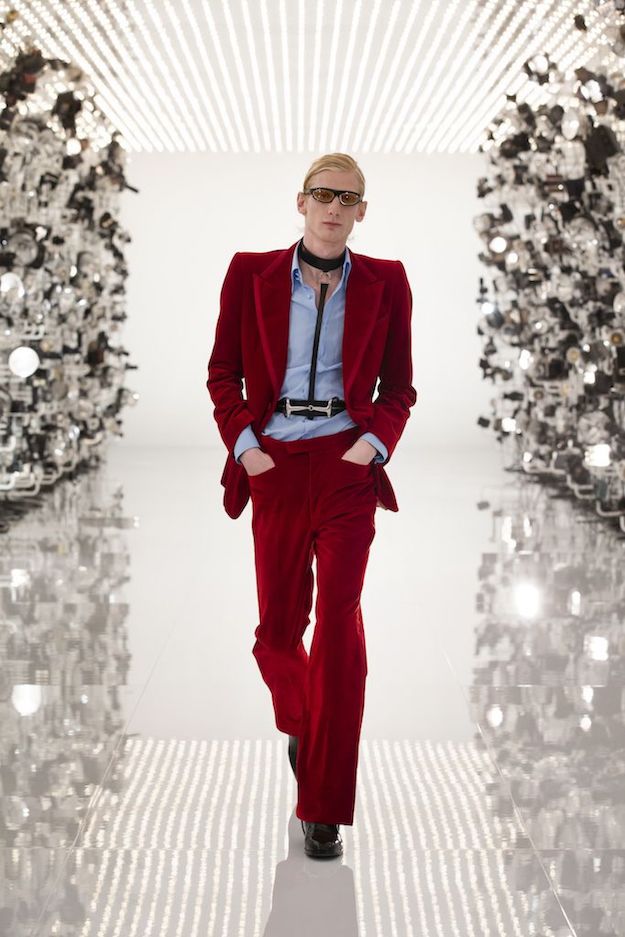
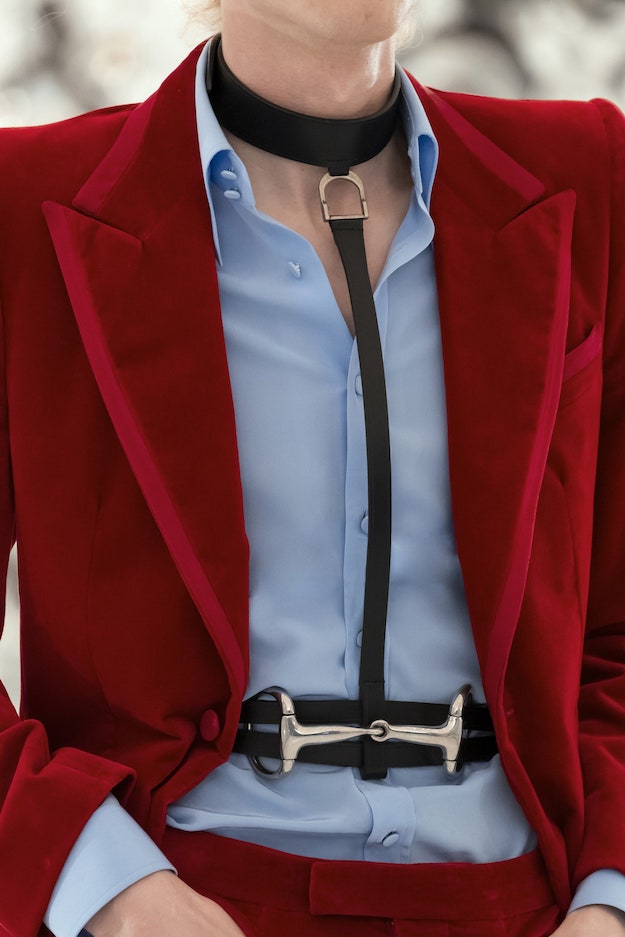
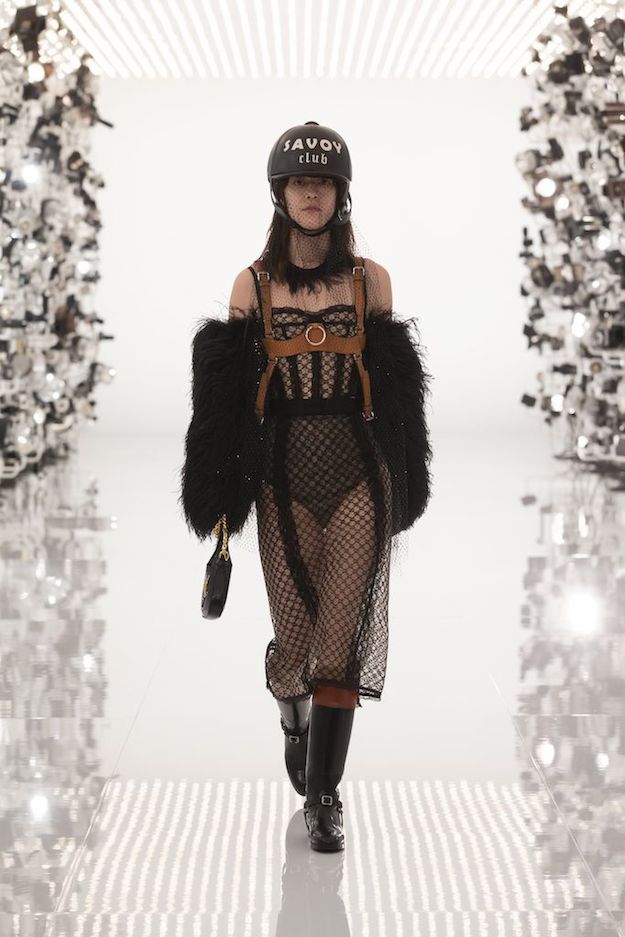
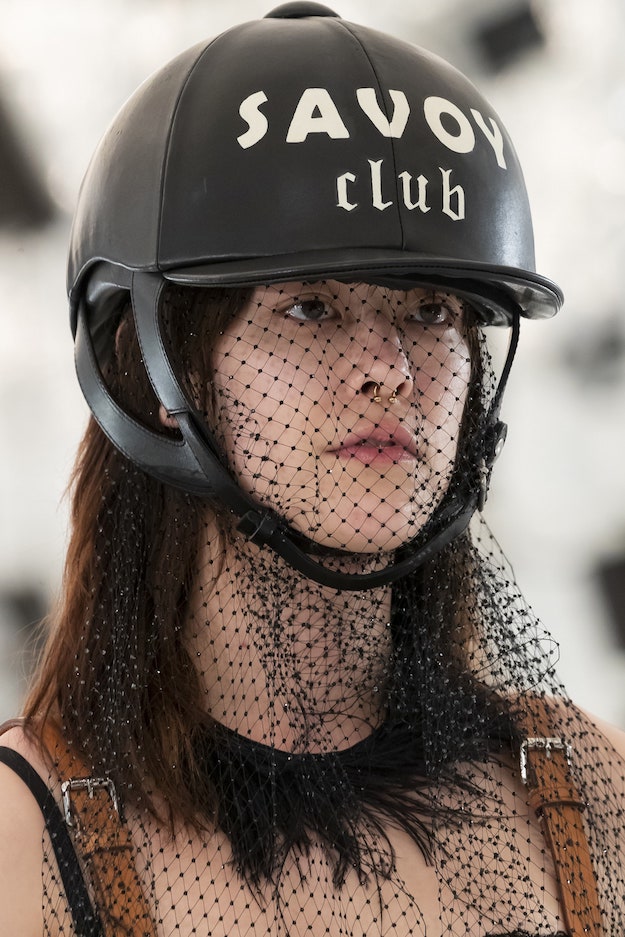
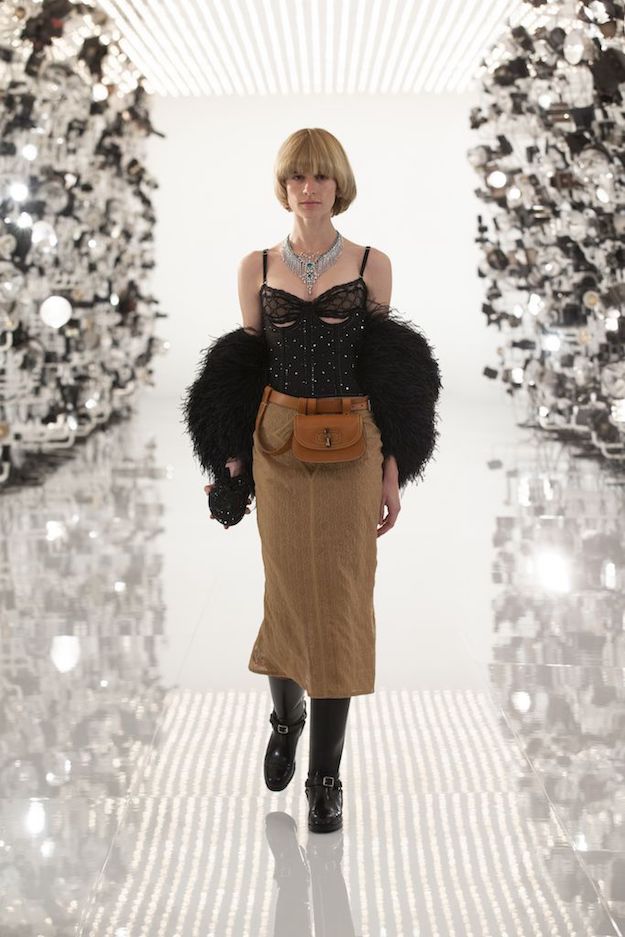
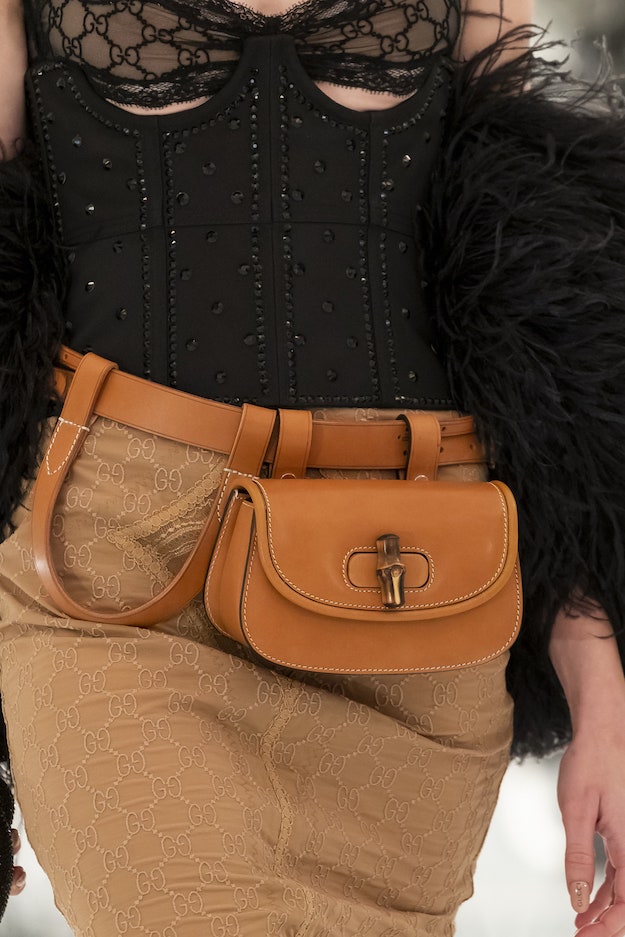
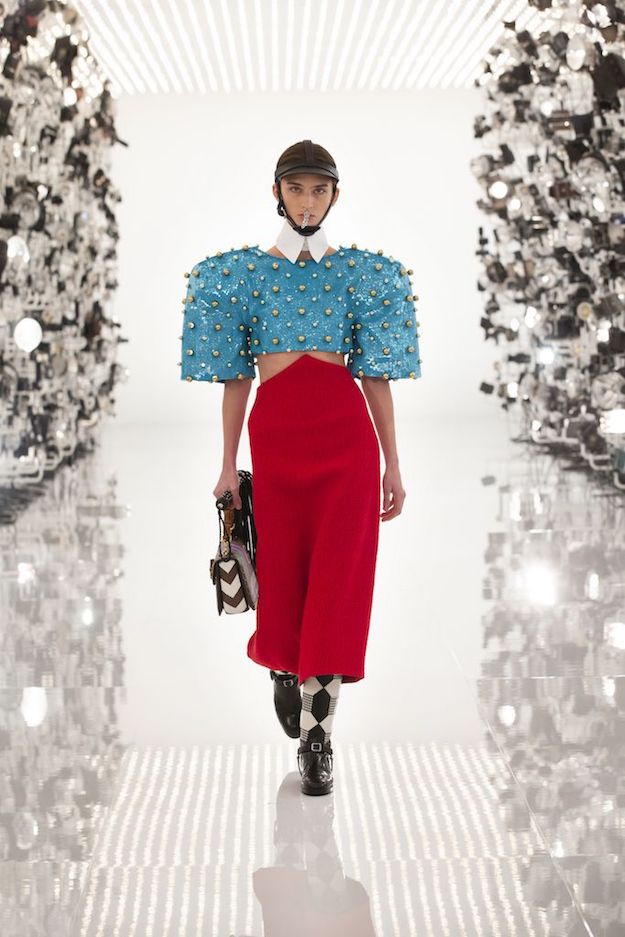
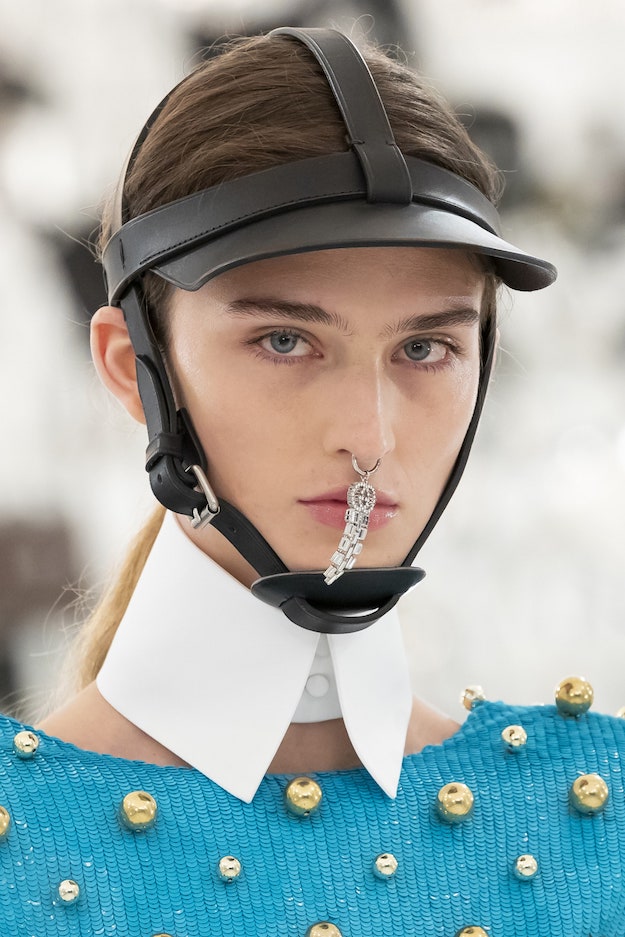
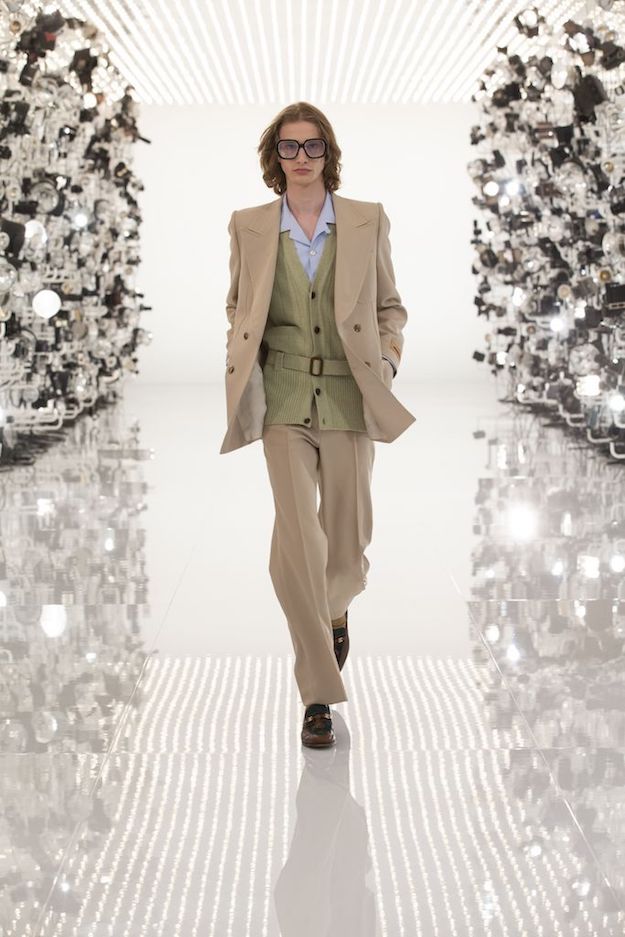
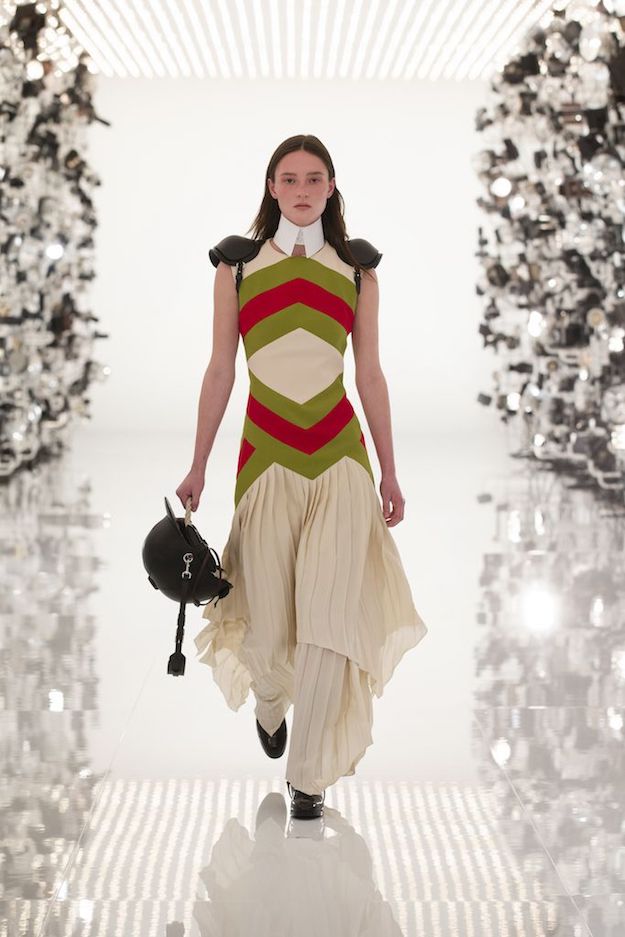
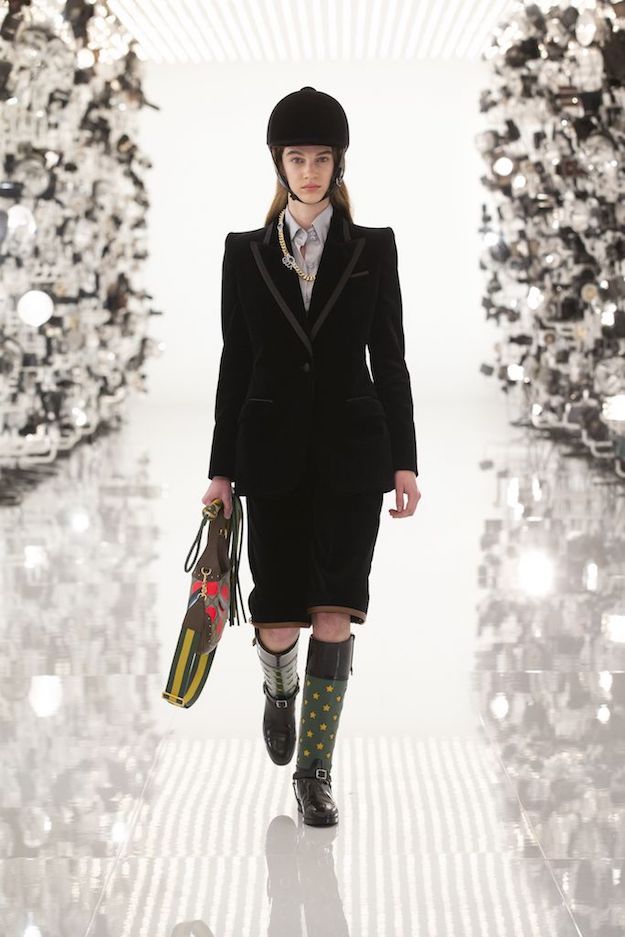
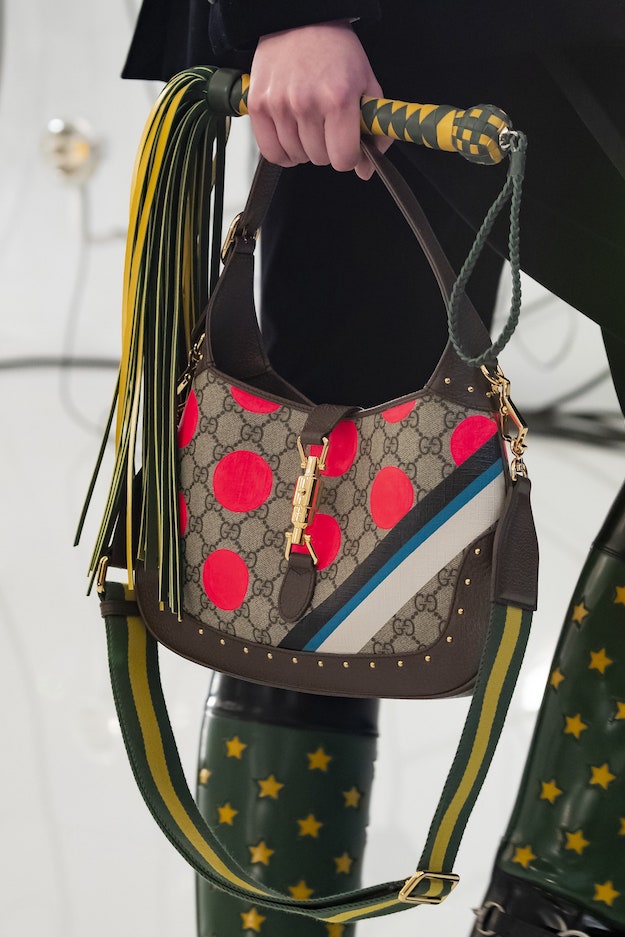
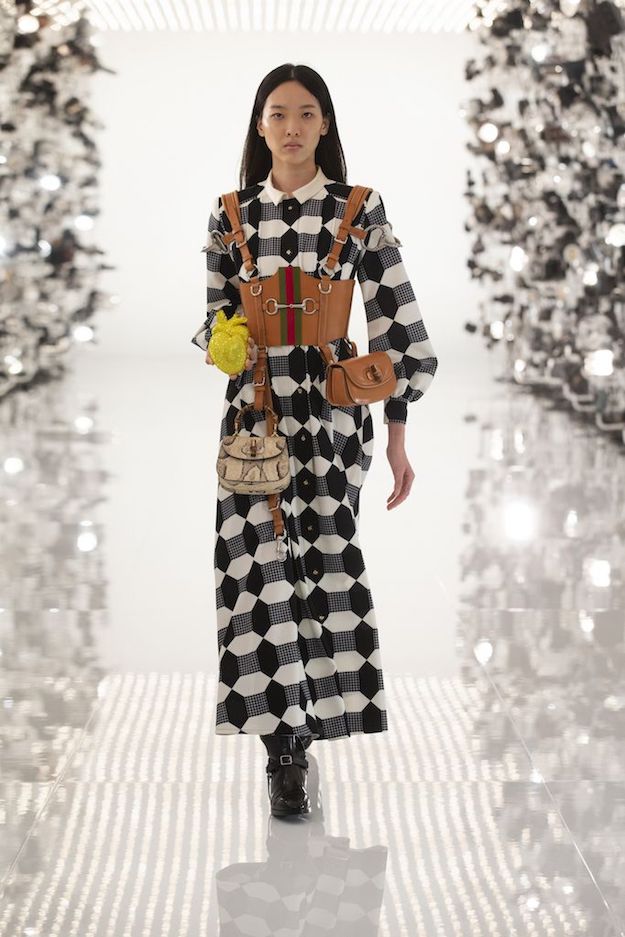
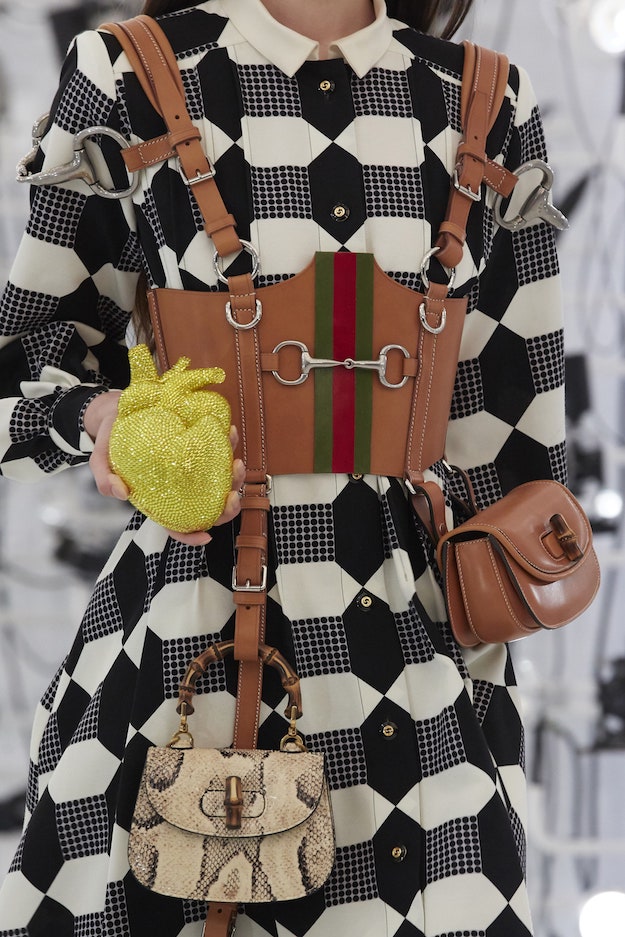
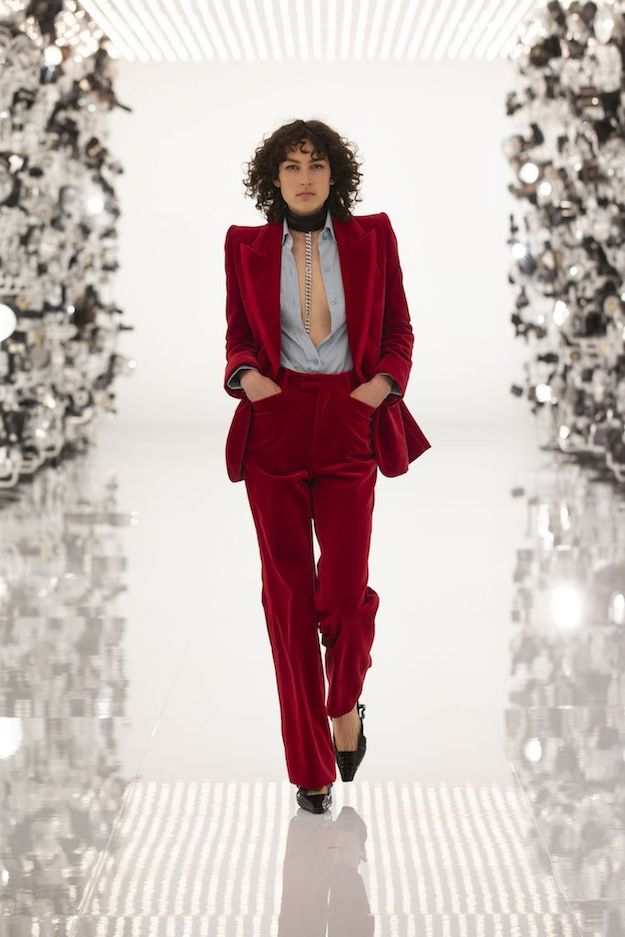
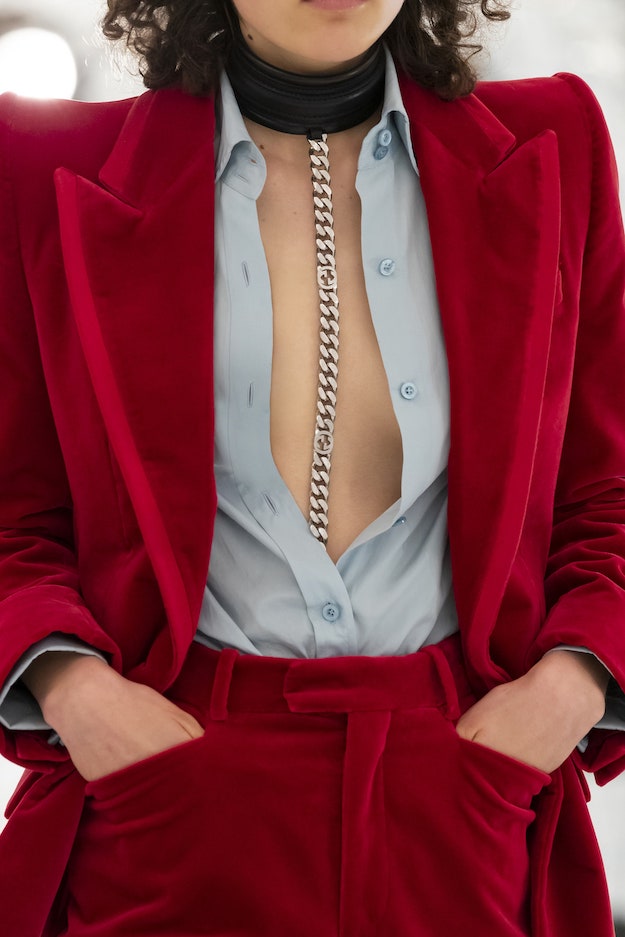
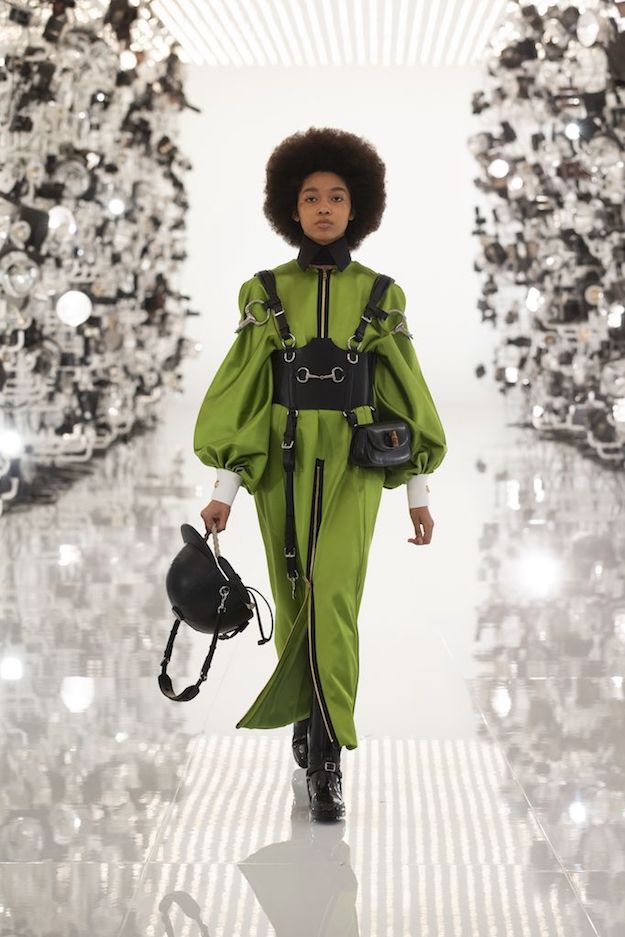
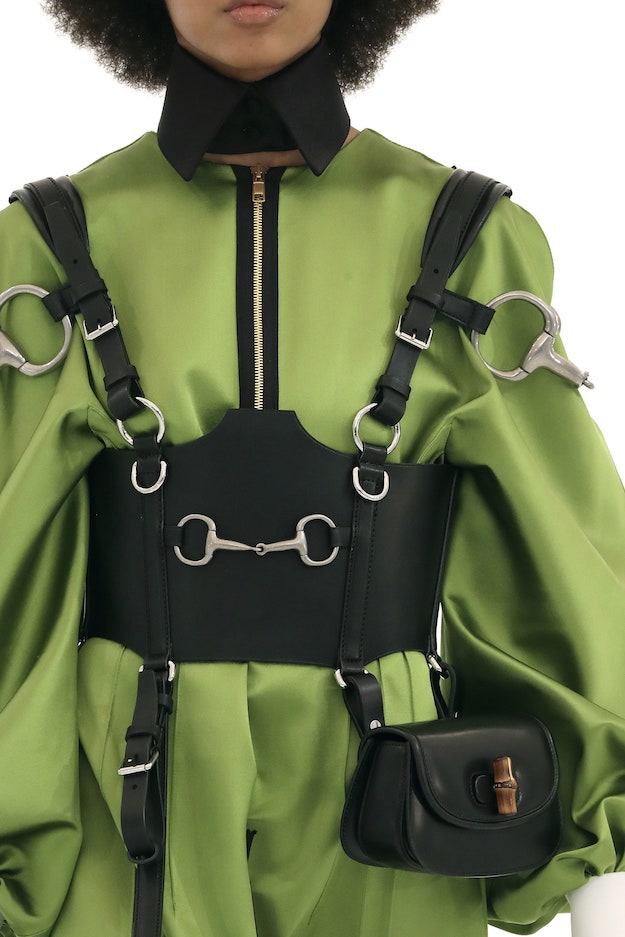
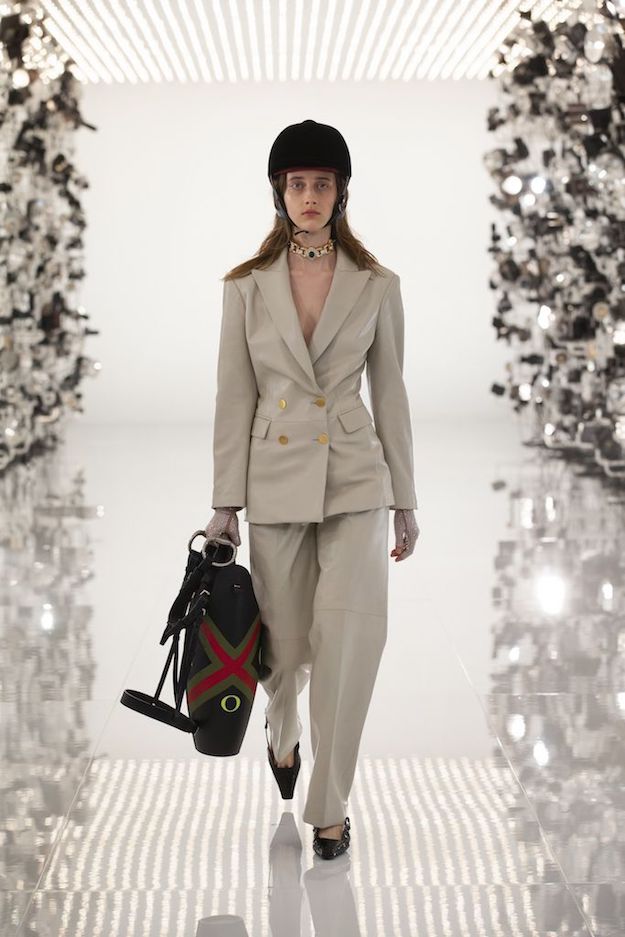

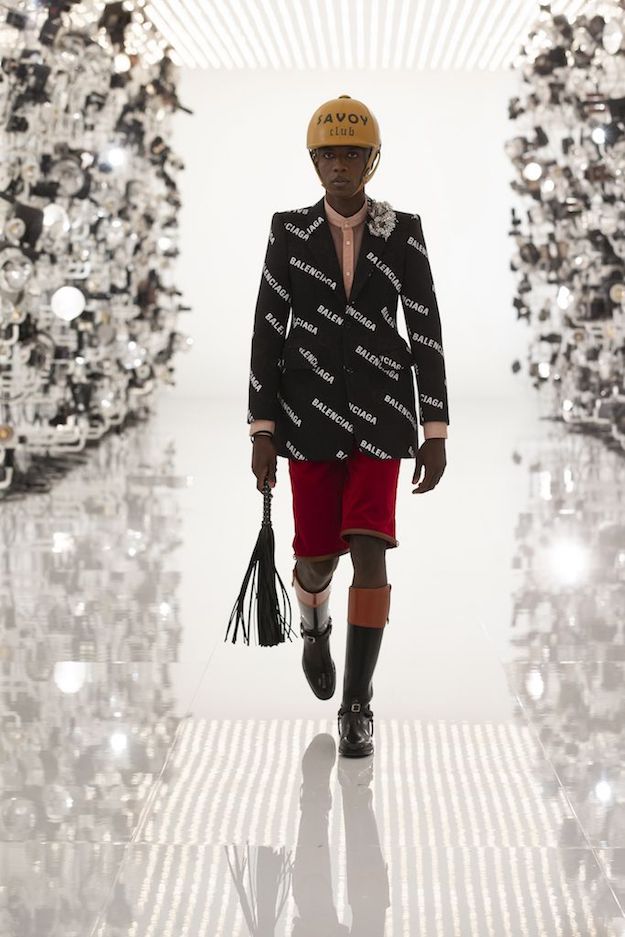
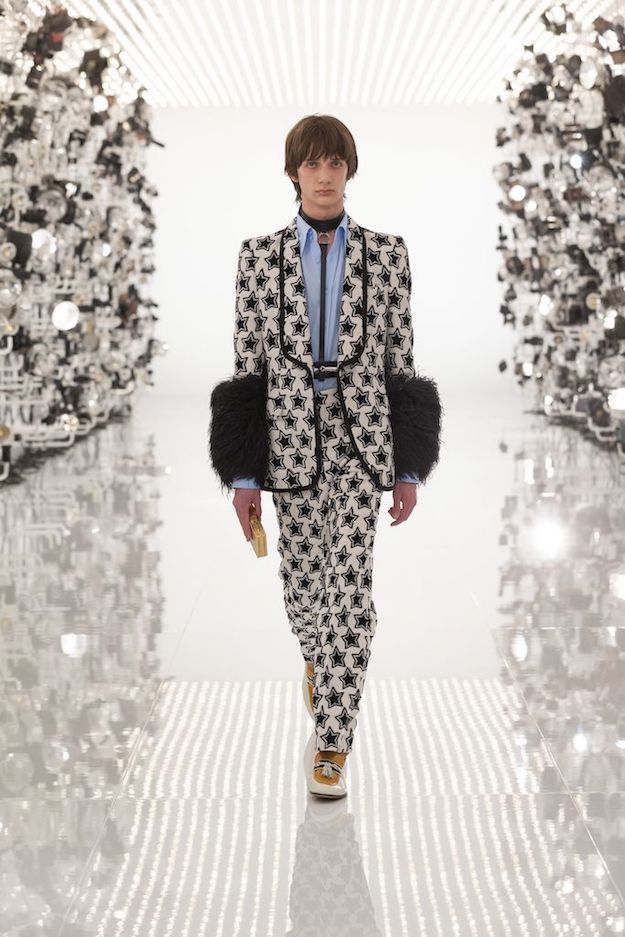

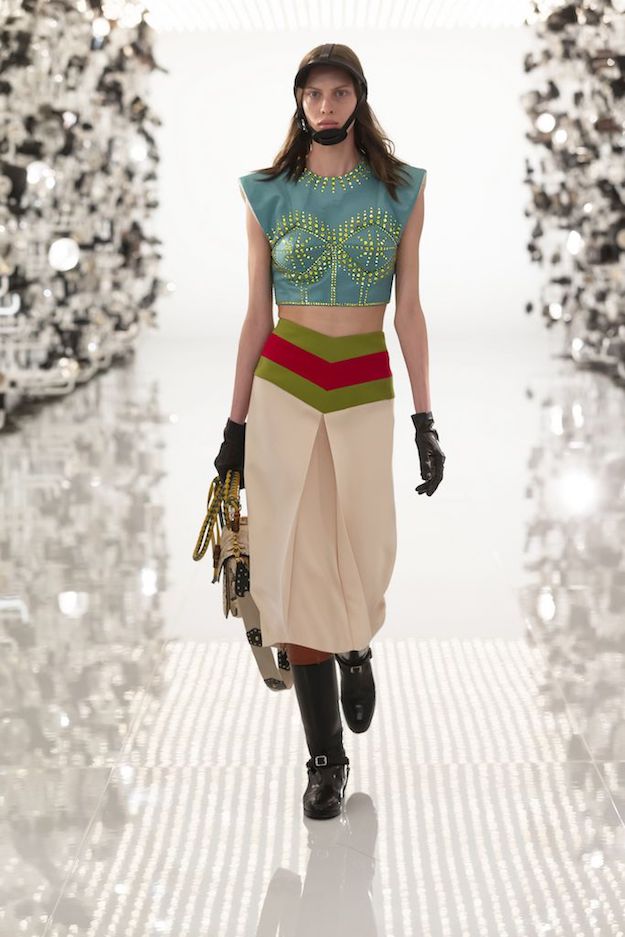
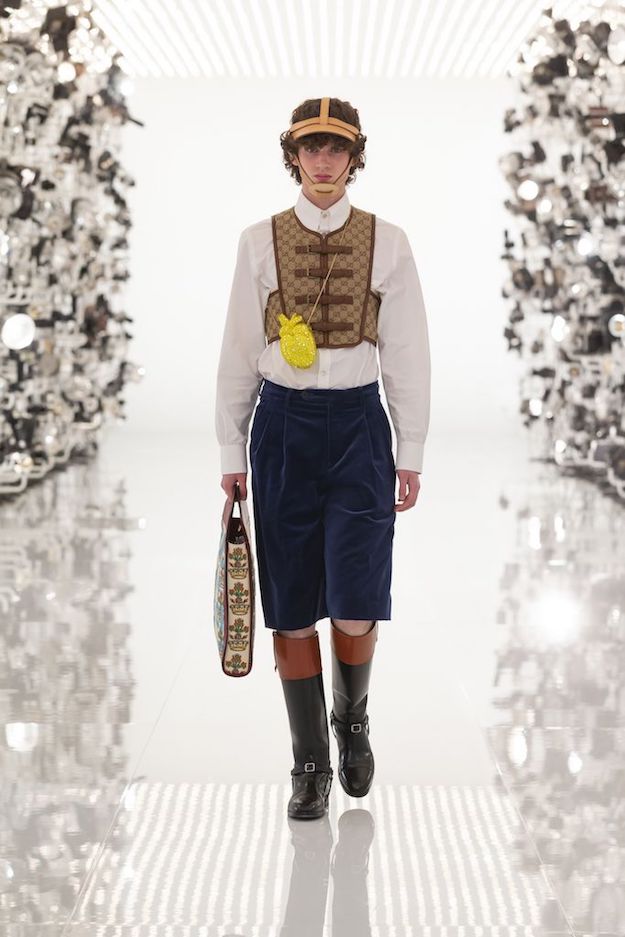
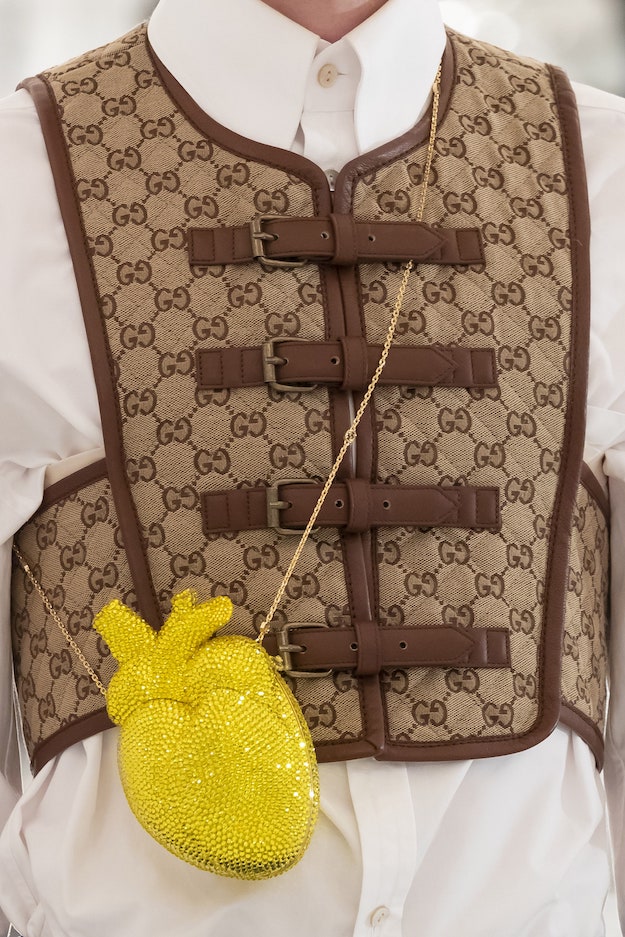
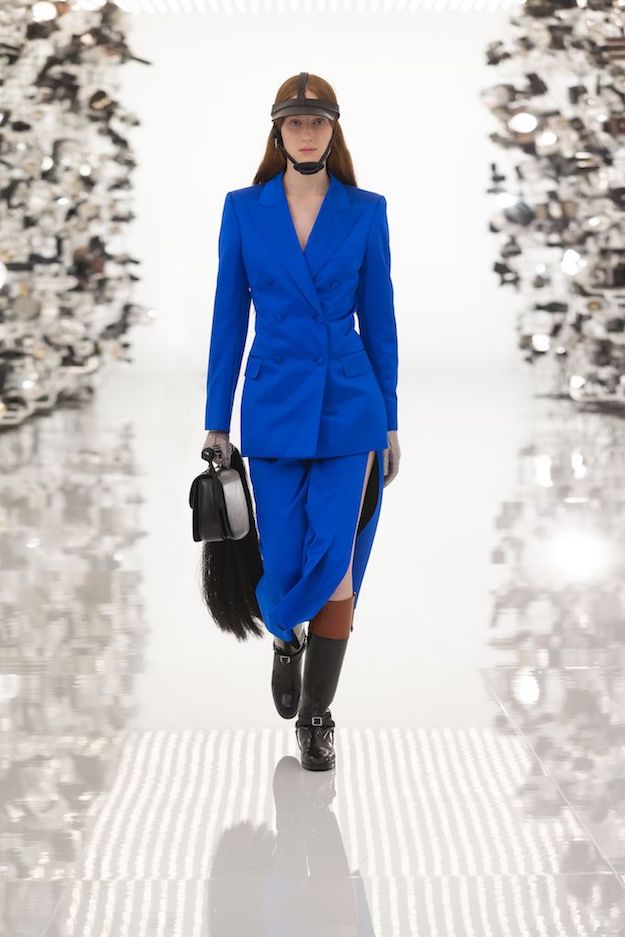
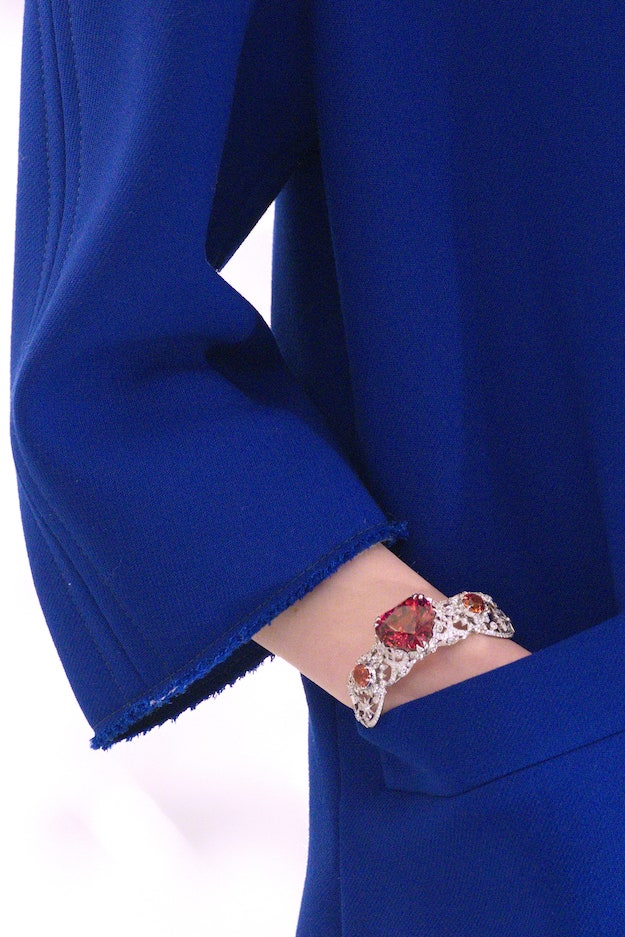
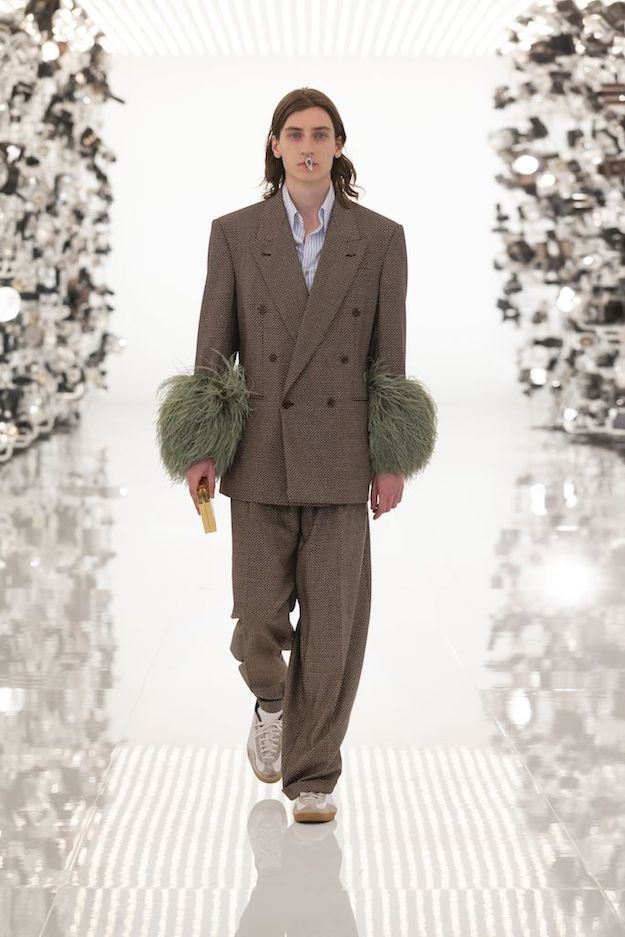
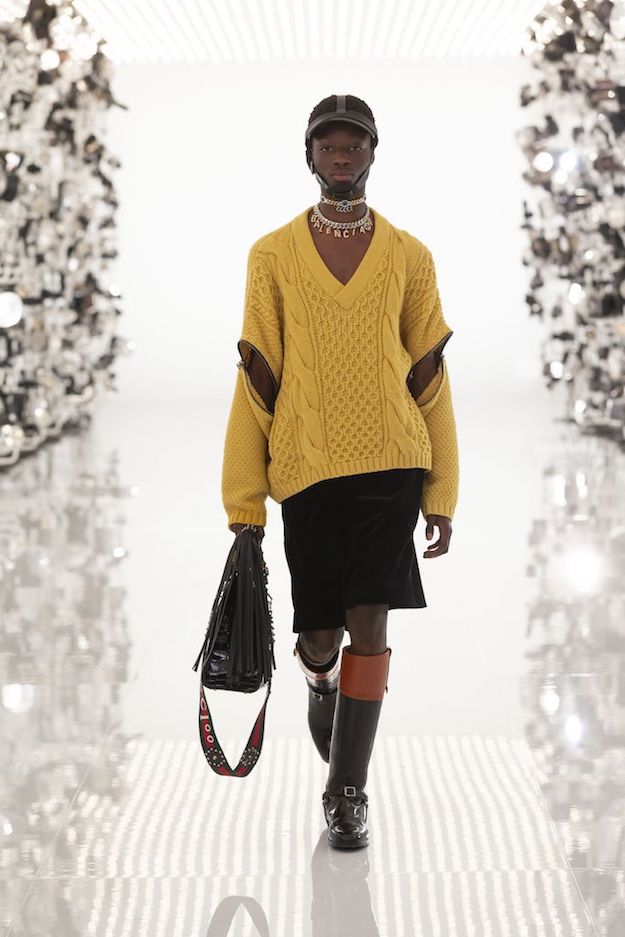
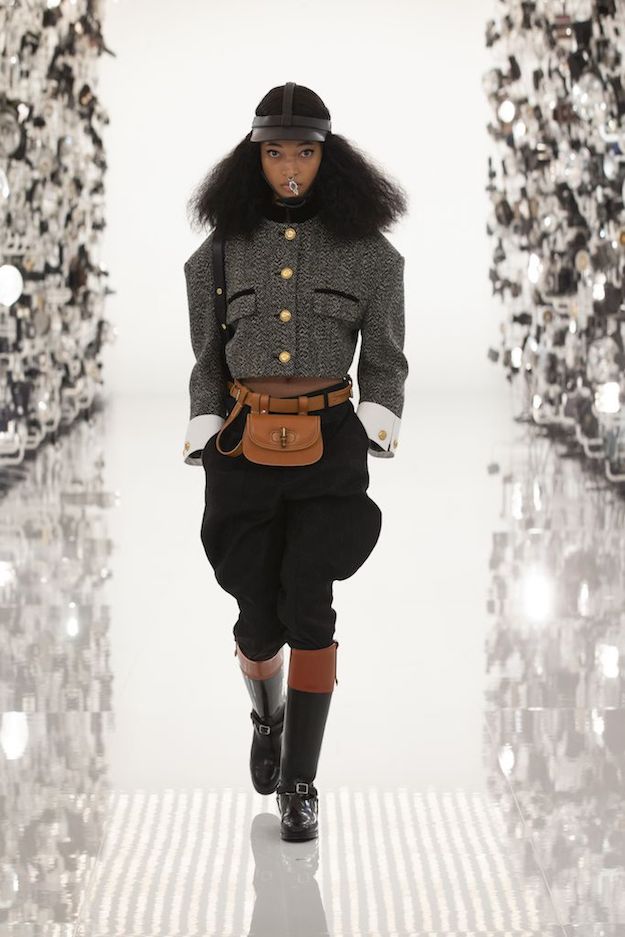
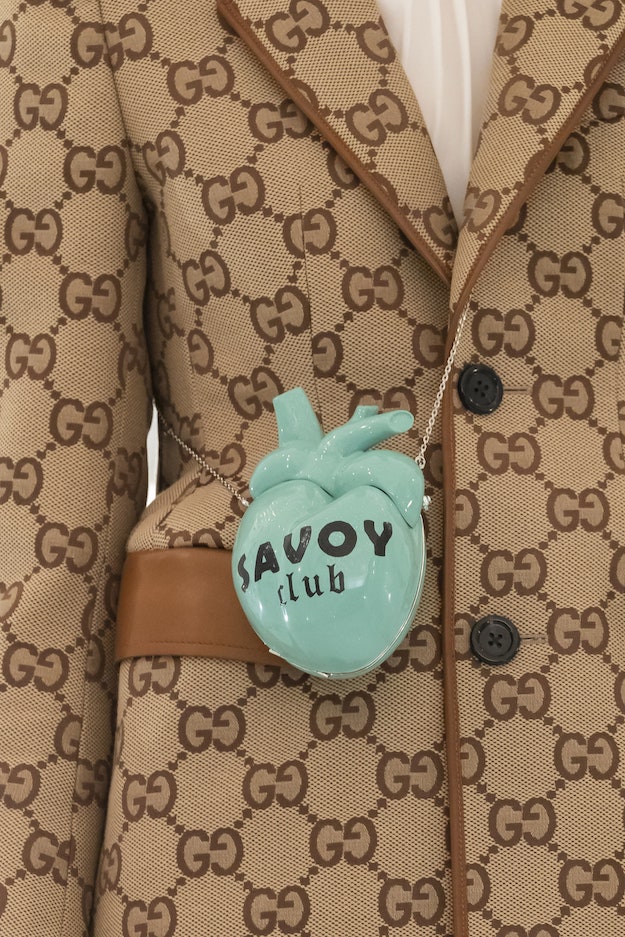
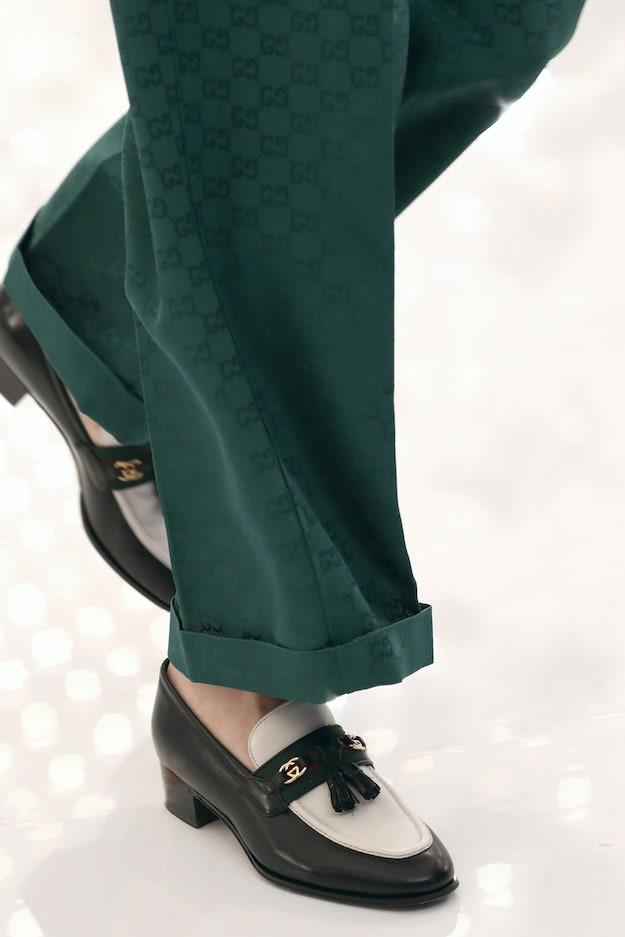
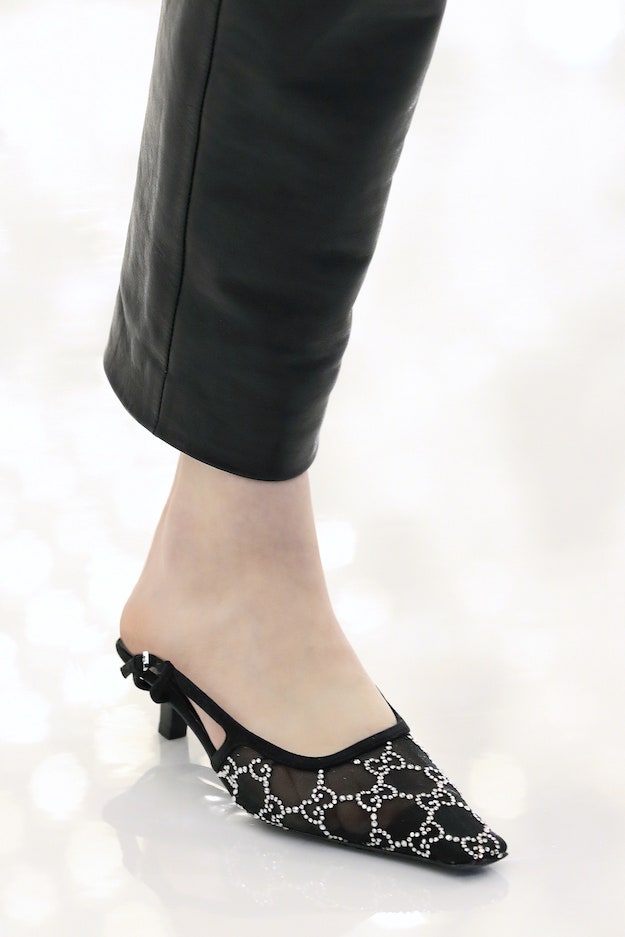
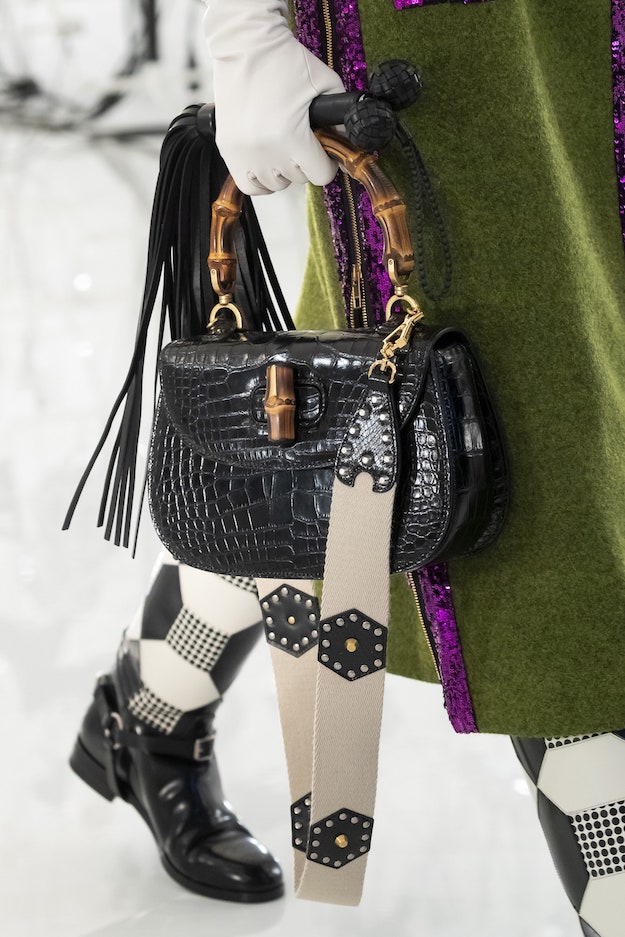
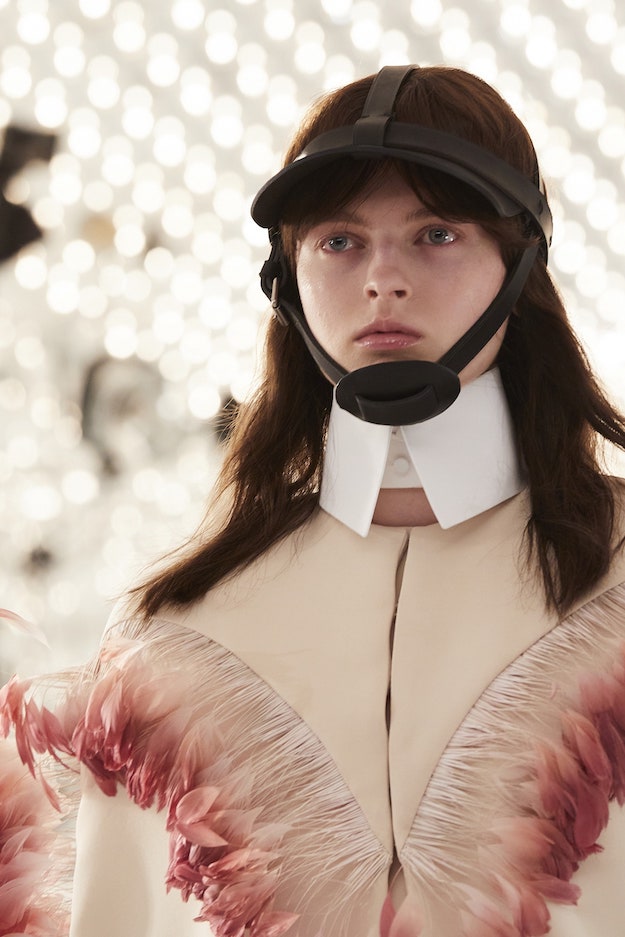
The soundtrack to today’s Gucci show indicates just how deeply the Italian brand has penetrated the zeitgeist. Lil Pump kicked things off with “Gucci Gang.” Rick Ross and Bhad Bhabie rapped about a “Green Gucci Suit” and “Gucci Flip Flops,” respectively, and Die Antwoord, with an assist from Dita Von Teese, crooned about “Gucci Coochie.” Alessandro Michele, the house’s creative director, is a one-man hit factory—but of course he has a lot of good material to work with.
Gucci turns 100 this year. Michele’s new collection is a celebration of that milestone, and in his fashion it’s a fabulously idiosyncratic one. Not unexpectedly it reexamines the house’s history; this is standard operating procedure on anniversaries. Michele picked up on Gucci’s equestrian codes, giving them a fetishistic spin—one model cracked their whip as they made their way down the runway. He also reprised one of Tom Ford’s greatest hits, the red velvet tuxedo from fall 1996 that Michele said “made Gwyneth Paltrow famous,” with tweaks including new, more pronounced shoulders, a leather harness, and versions for both men and women.
More surprising were the pieces that Michele lifted—or “quoted,” to use the company parlance—from Demna Gvasalia’s Balenciaga, another brand in the Kering stable. As the show began and social media started pinging with chatter about the collaboration, a press representative clarified that this was not in fact one of fashion’s familiar hookups but rather the first output from Michele’s so-called hacking lab. With Gvasalia’s permission, Michele used some of the Balenciaga designer’s iconic shapes and symbols, including the padded hip jacket of fall 2016 and spring 2017’s spandex peplum top and leggings. All these things mixed and mingled with his own symbols—glitter for day, copious amounts of marabou, and anatomical heart minaudières encrusted with rhinestones—alongside a vital new emphasis on classic tailoring.
In that hacking, Michele has something in common with the sample-loving musicians on his soundtrack. But it’s a rarer occurrence in fashion, a point made clear by a written statement from François-Henri Pinault, Kering’s chairman and CEO: “I have seen how [Alessandro and Demna’s] innovative, inclusive, and iconoclastic visions are aligned with the expectations and desires of people today,” he said. “Those visions are reflected not only in their creative offerings but also in their ability to raise questions about our times and its conventions.” The industry will be watching how, with whom, and where this concept goes next.
(Vogue.com)
